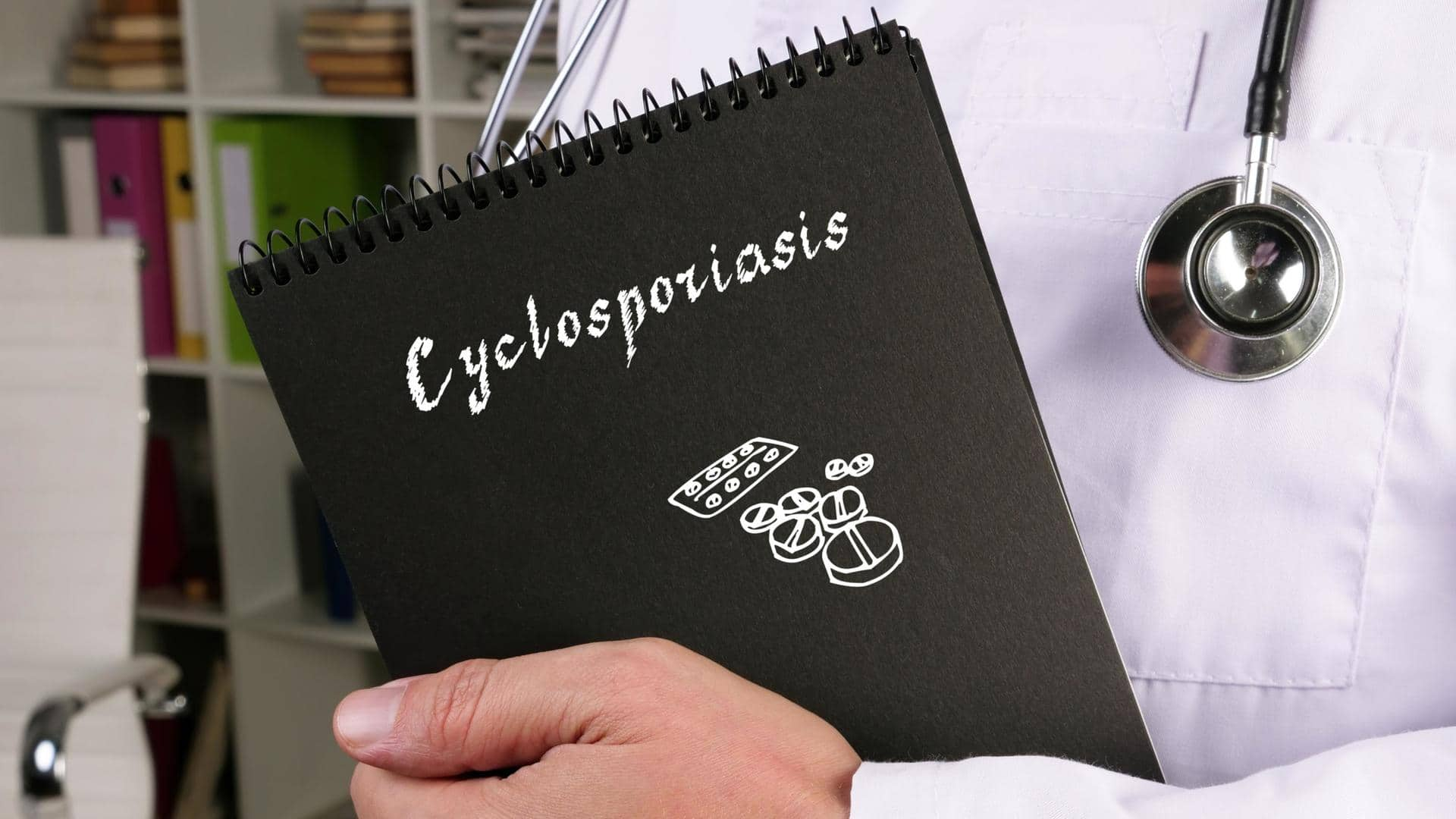
Cyclosporiasis: Know its symptoms, causes, and treatment methods
What's the story
Cyclosporiasis primarily affects the gastrointestinal tract, leading to a range of symptoms that can be debilitating and persistent if left untreated. This parasitic infection is typically associated with contaminated food or water, particularly in regions with poor sanitation and hygiene practices. Understanding the symptoms, causes, and treatment options for cyclosporiasis is crucial for timely diagnosis and effective management of this condition.
Cyclosporiasis
What is cyclosporiasis?
Cyclosporiasis is a sickness caused by infection with a pathogenic protozoan called Cyclospora cayetanensis. This single-celled parasite is only visible through a microscope. It causes food and water-related gastrointestinal illness, watery diarrhea, and other intestinal health problems. It is not something we catch from others. However, this parasite can give us really bad diarrhea, especially if we're traveling.
Symptoms
What are its symptoms?
Even though a person can catch the infection without any signs, usually, the symptoms appear around a week after getting exposed to the parasite. The infected patient will experience frequent and explosive episodes of watery diarrhea, and feel bloated and gassy. Their stomach will ache, and they might lose their appetite. They may experience a low-grade fever, fatigue, and achy muscles, and lose weight.
Causes
What causes it?
Cyclospora spreads when we ingest food or water contaminated by feces. Even contaminated fruits and vegetables can make one sick. When the tiny parasites get inside our bodies, they make special cells that can survive in wet conditions for a long time. It typically needs to spend one to two weeks in that environment to become infectious to the body.
Risk
Who is at risk?
Cyclosporiasis is widespread in tropical and subtropical regions with poor hygiene or inadequate sanitation. It's been seen in parts of Central and South America, the Middle East, and Southeast Asia. If you reside in, visit, or consume imported produce from these areas, you face a higher risk of contracting cyclosporiasis. Individuals with weakened immune systems are particularly vulnerable to severe illness from this parasite.
Treatment
Treatment methods involved
If you are in good health, you might recover without treatment. However, if needed, your doctor may prescribe antibiotics like sulfamethoxazole and trimethoprim (Bactrim, Cotrim, Septra) to fight the infection. While you recover, make sure to rest and stay hydrated by drinking plenty of fluids. Severe diarrhea can lead to dangerous dehydration, so it is crucial to replenish lost fluids.